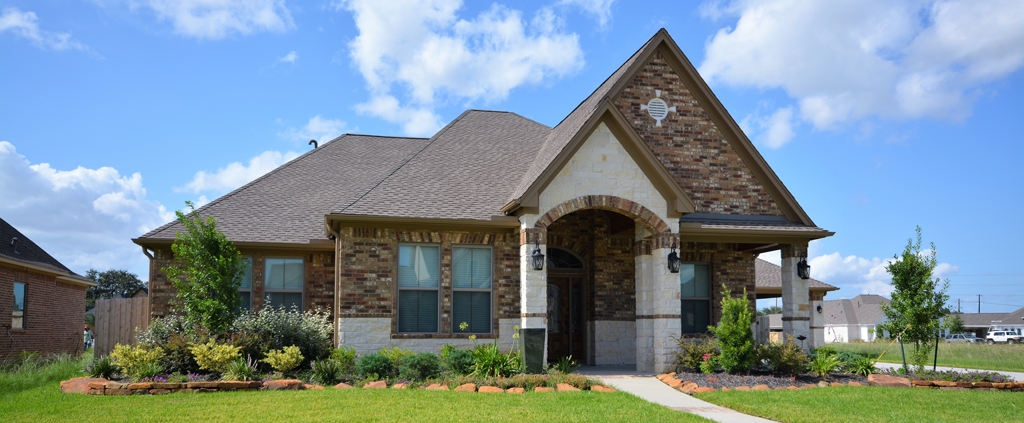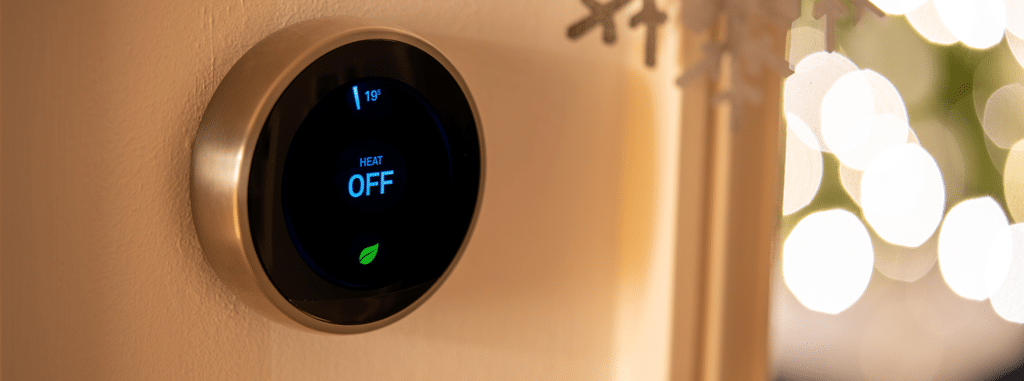
Components Of HVAC System Residential: Revitalize Your Home
Have you ever wondered what keeps your home so comfortably warm in winter and refreshingly cool during summer?
It’s all about the components of your HVAC system. Understanding these components of HVAC system residential not only empowers you with knowledge but also helps you maintain a well-functioning system.
In this article, we delve deep into the world of HVAC systems.
From the basic components that make up the system to advanced maintenance tips, we’ve got you covered.
Whether you’re a new homeowner or looking to upgrade your existing system, this guide will provide valuable insights into maximizing your home’s comfort and efficiency.
Also read: Cool Comfort: Elite Air Conditioning Service Secrets
What are Components of HVAC System Residential?
Components of HVAC system residential are the integral parts that work in unison to provide heating, ventilation, and air conditioning in your home. This system is crucial for maintaining a comfortable and healthy indoor environment, adapting to the varying weather conditions outside.
At the heart of the system is the thermostat, which acts as the control center.
It regulates the temperature by signaling the HVAC system to either heat or cool your home based on your preferences.
The furnace, typically powered by gas, electricity, or oil, is responsible for heating the air circulated throughout your home. In contrast, the air conditioner cools and dehumidifies the air during warmer months, ensuring a pleasant indoor atmosphere.
The ductwork plays a vital role as the circulatory system of your HVAC. It distributes the heated or cooled air evenly across different rooms. This network of ducts is essential for efficient airflow and maintaining consistent temperatures throughout your home.
The vents and registers are the points where the conditioned air finally enters your living spaces. They are strategically placed to maximize airflow and comfort.
Another key component is the air handler, which circulates and regulates the air flow within the system. It works in tandem with the furnace and air conditioner to ensure efficient distribution of air.
The evaporator coil and condenser coil in the air conditioner play a crucial role in the heat exchange process, contributing to the cooling of your home.
For homes in certain climates, a heat pump might be part of the system. It serves a dual purpose, providing heating in the winter and cooling in the summer. This component is known for its energy efficiency and is an excellent option for moderate climates.
Understanding these components of HVAC system residential is essential for any homeowner. It not only helps in maintaining the system effectively but also ensures that you can make informed decisions when it comes to repairs, upgrades, or replacements.
With this knowledge, you can ensure that your home remains a haven of comfort, no matter the season.
A Detailed Explanation of the Components of HVAC System Residential
The Core of Home Comfort
The HVAC system, an acronym for Heating, Ventilation, and Air Conditioning, is fundamental to creating and maintaining a comfortable home environment.
This system is not just a luxury but a necessity, especially in regions experiencing extreme weather conditions. It’s designed to provide a consistent and pleasant indoor climate, regardless of the outdoor temperatures.
Key Components of HVAC Systems
At the heart of every HVAC system are several critical components, each contributing uniquely to the system’s overall functionality. These include:
The Furnace: Often the largest component, the furnace is responsible for heating the air distributed throughout your home. It’s typically powered by gas, electricity, or oil and is a crucial element in the components of HVAC system residential.
The Air Conditioner: Working in tandem with the furnace, the air conditioner cools and dehumidifies the air during warmer months. It plays a pivotal role in maintaining indoor comfort during hot weather.
The Ductwork: Acting like the circulatory system of the HVAC, ducts distribute the heated or cooled air throughout your home. Properly designed and maintained ductwork is essential for efficient and even air distribution.
Thermostat: This is the control center of the HVAC system. It allows you to set the desired temperature and regulates the system to maintain that temperature, ensuring your comfort.
Vents and Registers: These are the visible parts of your HVAC system, where the conditioned air enters your rooms. They play a crucial role in ensuring that the air is evenly distributed throughout the space.
Importance of Air Quality
In addition to temperature regulation, HVAC systems play a vital role in maintaining indoor air quality.
They filter out pollutants and allergens, contributing to a healthier living environment. This aspect is particularly important for individuals with allergies or respiratory issues.
Energy Efficiency and Sustainability
Modern HVAC systems are designed with a focus on energy efficiency and environmental sustainability.
Features like programmable thermostats and energy-efficient components not only reduce your carbon footprint but also lead to significant savings on energy bills.
Understanding the basics of the components of HVAC system residential is essential for any homeowner. This knowledge not only helps in maintaining the system effectively but also ensures that you can make informed decisions when it comes to repairs, upgrades, or replacements.
With this understanding, you can ensure that your home remains a haven of comfort and health, no matter the season.
Also read: How To Choose The Right Ac Repair Company: Proven Tips
The Thermostat: Your Control Center
The Central Nerve of Home Comfort
The thermostat, often considered the brain of the components of HVAC system residential, plays a pivotal role in maintaining your home’s comfort.
It’s more than just a temperature regulator; it’s the central command that communicates your preferences to the entire system.
Advanced Features for Enhanced Efficiency
Modern thermostats have evolved beyond basic temperature settings. Many now offer programmable features, allowing you to set different temperatures for various times of the day or week.
This adaptability not only enhances comfort but also improves energy efficiency, a key aspect of HVAC system performance. By programming your thermostat to lower the heat when you’re not home or to cool your house just before you arrive, you can significantly reduce energy usage and costs.
Smart Thermostats: The Next Generation
The advent of smart thermostats has revolutionized how we interact with our HVAC systems. These devices offer remote control via smartphones, learning capabilities to adjust settings based on your habits, and even the ability to provide energy usage reports.
This level of control and information can lead to more informed decisions about your HVAC usage, further optimizing the performance of your components of HVAC system residential.
Integration with Home Automation
In today’s interconnected world, thermostats can be integrated into broader home automation systems.
This integration allows for seamless control of not just temperature, but also other aspects of home comfort, such as humidity levels and air quality. Such comprehensive control ensures that every component of your HVAC system works in harmony, providing an ideal living environment.
Maintenance for Longevity
Regular maintenance of your thermostat is crucial. Simple actions like replacing batteries, cleaning its components, and ensuring it’s not affected by external factors like direct sunlight or drafts can significantly impact its accuracy and efficiency.
A well-maintained thermostat not only ensures the optimal performance of your HVAC system but also extends its lifespan, making it a key player in the components of HVAC system residential.
The thermostat is not just a temperature regulator; it’s the cornerstone of your home’s HVAC system, ensuring efficiency, comfort, and control.
Its evolution from a simple dial to a smart, programmable device reflects the advancements in HVAC technology, making it an indispensable component of modern residential living.
The Furnace: The Powerhouse of Heat
Central Heating Source in HVAC Systems
The furnace, a key component in the components of HVAC system residential, serves as the primary source of heat. Its size and complexity make it the powerhouse of your home’s heating system.
Typically powered by gas, electricity, or oil, the furnace’s primary role is to heat air, which is then circulated throughout your home to maintain a warm and comfortable environment.
Types of Furnaces and Their Efficiency
Depending on your home’s requirements and energy availability, you can choose from different types of furnaces. Gas furnaces are popular for their efficiency and cost-effectiveness, especially in colder regions.
Electric furnaces, while more expensive to operate, offer an alternative in areas where natural gas is not readily available.
Oil furnaces, though less common, are used in areas where oil is a more economical fuel option.
Energy Efficiency and Environmental Impact
Modern furnaces are designed with energy efficiency in mind. The Annual Fuel Utilization Efficiency (AFUE) rating, a measure of a furnace’s efficiency in converting fuel to heat, is an important factor to consider when selecting a furnace.
Higher AFUE ratings indicate more efficient units, leading to lower utility bills and reduced environmental impact. This efficiency is a crucial aspect of the components of HVAC system residential, as it directly affects both your comfort and your carbon footprint.
Maintenance for Optimal Performance
Regular maintenance is vital for the longevity and efficiency of your furnace.
This includes tasks like cleaning or replacing filters, inspecting the blower belt, and ensuring the burner and heat exchanger are functioning correctly. Neglecting these maintenance tasks can lead to decreased efficiency, higher energy costs, and even safety hazards.
The Role of the Furnace in Overall Comfort
The furnace not only provides warmth but also plays a significant role in the overall air quality and comfort of your home.
A well-functioning furnace (one of the components of hvac system residential) ensures even heat distribution, reduces humidity levels, and contributes to a healthier indoor environment. It’s essential to choose a furnace that aligns with your home’s size and your family’s needs to ensure optimal performance of your components of HVAC system residential.
The furnace is a critical component in your home’s HVAC system, responsible for providing warmth and comfort. Its efficiency, type, and maintenance are key factors that contribute to the effective functioning of your HVAC system.
Understanding the importance of the furnace and how it operates within the broader HVAC system is essential for any homeowner looking to maintain a comfortable and energy-efficient home.
The Air Conditioner: Beat the Heat
Essential Cooling Component in HVAC Systems
The air conditioner, a vital part of the components of HVAC system residential, is your home’s main defense against the sweltering heat of summer months.
It works in tandem with the furnace, not just cooling the air but also dehumidifying it, ensuring your home remains a comfortable oasis even during the hottest days.
How Air Conditioners Function
Air conditioners operate on a simple principle: they remove heat from indoor air and release it outside, thereby cooling your home. This process involves a refrigerant, which absorbs heat from the indoor air.
The cooled air is then circulated back into your home, while the absorbed heat is expelled outside. This cycle continues until your home reaches the desired temperature set on the thermostat.
Types of Air Conditioners
There are various types of air conditioners, each suited to different needs and home layouts. Central air conditioners are common in many homes and are ideal for cooling multiple rooms or larger spaces.
Window units and portable air conditioners offer flexibility and are suitable for smaller spaces or homes without ductwork.
Regardless of the type, each plays a crucial role in the components of HVAC system residential, providing relief from heat and improving indoor air quality.
Energy Efficiency and Cost-Effectiveness
Modern air conditioners are designed with energy efficiency in mind. The Seasonal Energy Efficiency Ratio (SEER) rating is a key indicator of an air conditioner’s efficiency. A higher SEER rating means greater efficiency and lower energy costs.
Choosing an energy-efficient air conditioner not only reduces your carbon footprint but also leads to significant savings on utility bills.
Maintenance for Reliable Cooling
Regular maintenance is essential to keep your air conditioner running smoothly. This includes cleaning or replacing air filters, checking refrigerant levels, and ensuring the condenser and evaporator coils are clean and unobstructed.
Proper maintenance enhances the efficiency and longevity of the air conditioner, ensuring it remains a reliable component of your components of HVAC system residential.
The air conditioner is more than just a cooling device; it’s a key element in maintaining a comfortable and healthy living environment during warmer months.
Its efficient operation, coupled with regular maintenance, ensures that your home remains cool, dehumidified, and comfortable. Understanding the different types of air conditioners and their maintenance needs is crucial for any homeowner looking to optimize their home’s cooling system.
Ductwork: The Circulatory System
Integral Pathways in HVAC Systems
In the components of HVAC system residential, ductwork plays a role akin to a circulatory system.
Just as veins and arteries distribute blood throughout the body, ducts are responsible for distributing heated or cooled air throughout your home.
This network of tubes is essential for delivering consistent and efficient airflow to every room, ensuring uniform comfort across your living spaces.
Design and Layout of Ductwork
The design and layout of ductwork are crucial for optimal HVAC performance. Properly sized and strategically placed ducts ensure efficient air distribution without loss of energy.
The ductwork must be tailored to your home’s specific layout, with careful consideration of room sizes, locations, and the overall structure of the building.
This customization is key to maximizing the efficiency of your components of HVAC system residential.
Materials and Insulation
Ducts (one of the components of HVAC system residential) are typically made from materials like sheet metal, fiberglass, or flexible plastic. The choice of material can impact the efficiency and noise level of your HVAC system.
Insulation is another critical factor; well-insulated ducts reduce energy loss, maintaining the temperature of the air as it travels through your home.
This efficiency is vital for both environmental sustainability and cost-effectiveness.
Importance of Sealing and Maintenance
Leakage in ductwork can lead to significant energy loss and uneven heating or cooling. Sealing and insulating ducts are essential steps in maintaining an efficient HVAC system.
Regular maintenance, including cleaning and inspecting for leaks or damage, ensures that your ductwork remains an effective component of your components of HVAC system residential.
Impact on Indoor Air Quality
Ductwork not only affects temperature control but also plays a significant role in indoor air quality.
Dust, allergens, and other pollutants can accumulate in ducts over time. Regular cleaning of ductwork is essential to prevent these contaminants from circulating through your home, ensuring a healthier living environment.
Ductwork is a critical yet often overlooked component of HVAC systems. Its design, material, insulation, and maintenance play a significant role in the efficiency and effectiveness of your heating and cooling system.
Properly maintained ductwork ensures that your home enjoys consistent comfort and optimal air quality, making it a key element in the components of HVAC system residential.
Understanding and caring for your home’s ductwork is essential for any homeowner seeking to optimize their HVAC system’s performance and longevity.
Vents and Registers: The Final Frontier
Visible Gateways of Airflow in HVAC Systems
In the realm of components of HVAC system residential, vents and registers represent the final, visible stage where conditioned air makes its entry into your living spaces.
They are the tangible interface between the complex workings of your HVAC system and the comfort experienced in your home.
Types and Functions of Vents and Registers
Vents and registers come in various types and serve distinct functions. Supply vents are responsible for delivering conditioned air into rooms, while return vents draw room air back into the HVAC system for reconditioning.
Registers, equipped with dampers, allow you to control the flow of air into a room, enabling you to adjust the temperature and airflow according to your comfort needs.
Design and Aesthetics
Beyond their functional role, vents and registers also contribute to the aesthetic appeal of your home.
Available in a range of styles, materials, and finishes, they can be selected to complement your home’s interior design.
From sleek, modern designs to more traditional looks, the choice of vents and registers can enhance the overall decor while fulfilling their primary purpose in the components of HVAC system residential.
Optimizing Air Distribution
The placement and size of vents and registers are crucial for optimal air distribution. They need to be strategically located to ensure even air flow throughout the room, avoiding areas where furniture or drapes might obstruct the air stream.
Properly sized vents and registers ensure that each room receives an adequate amount of air, maintaining a balanced and comfortable environment.
Maintenance for Efficiency
Regular cleaning and maintenance of vents and registers are essential for the efficient operation of your HVAC system.
Dust and debris can accumulate over time, obstructing airflow and reducing system efficiency. Keeping these components clean ensures that your HVAC system operates at peak performance, contributing to the overall efficiency of your components of HVAC system residential.
Vents and registers (components of HVAC system residential) might seem like simple components, but they play a significant role in the effectiveness of your HVAC system. Their proper selection, placement, and maintenance are key to ensuring that your home enjoys balanced and efficient heating and cooling.
As the final frontier in the distribution of conditioned air, they are essential elements in maintaining the comfort and air quality of your living spaces, making them indispensable in the components of HVAC system residential.
Recognizing the Need for HVAC System Repair or Replacement
Identifying Common Warning Signs
Understanding when your components of HVAC system residential need repair or replacement is key to maintaining a comfortable and efficient home.
There are several signs that indicate your system may be failing or underperforming:
Unusual Noises: Strange sounds like banging, clanking, or whistling coming from your HVAC system can be a red flag. These noises often indicate mechanical problems, loose components, or airflow obstructions.
Frequent Cycling: If your system is constantly turning on and off, it’s a sign of inefficient operation. This frequent cycling not only strains the system but also leads to increased wear and tear.
Inconsistent Temperatures: Difficulty in maintaining consistent temperatures throughout your home suggests issues with the HVAC system. This could be due to problems with the thermostat, ductwork, or the heating and cooling units themselves.
Increased Energy Bills: A sudden spike in your energy bills without a corresponding increase in usage is a clear indicator of inefficiency. This often means that your system is working harder than it should to maintain the desired temperature.
Additional Indicators of HVAC Issues
Poor Air Quality: If you notice an increase in dust or a change in indoor air quality, it could be due to a failing HVAC system.
Poor ventilation and filtration can lead to health issues, particularly for those with allergies or respiratory conditions.
Age of the System: HVAC systems typically last between 15 to 20 years. If your system is approaching or has surpassed this age range, it may be time to consider replacement, especially if repairs are becoming more frequent and costly.
Humidity Problems: Excessive humidity or dryness in your home can be a sign of an inefficient HVAC system. Properly functioning systems regulate humidity levels, contributing to overall comfort.
Visible Wear and Tear: Physical signs of wear and tear, such as rust, corrosion, or leaks, are clear indicators that your system may need repair or replacement.
Consulting a Professional
If you observe any of these signs, it’s advisable to consult a professional. An experienced technician can assess the condition of your components of HVAC system residential and recommend the best course of action, whether it be repair or replacement.
Timely intervention can save you from more significant issues down the line, ensuring your system operates efficiently and effectively.
Remember, a well-maintained HVAC system is crucial for a comfortable, healthy, and energy-efficient home.
Maximizing Efficiency in HVAC Systems
Optimizing Your HVAC System for Peak Performance
To ensure that your components of HVAC system residential are operating at their best, there are several strategies you can implement.
These not only enhance the system’s efficiency but also contribute to a more comfortable and cost-effective home environment.
Seasonal Maintenance Checks
Regular seasonal maintenance is crucial for the optimal performance of your components of HVAC system residential. This involves:
Spring and Fall Tune-ups: Schedule professional inspections and maintenance before the onset of extreme weather conditions.
In spring, focus on your air conditioning unit to prepare for the summer heat. In fall, attention should shift to the heating components like the furnace to ensure readiness for winter.
Cleaning and Replacing Filters: Regularly clean or replace air filters to prevent dust and debris from clogging the system. This simple step can significantly improve air quality and system efficiency.
Checking Refrigerant Levels: For air conditioners, ensure that refrigerant levels are adequate. Low levels can indicate leaks and reduce cooling efficiency.
Upgrading to Energy-Efficient Models
Consider upgrading older components of HVAC system residential to more energy-efficient models. This includes:
High-Efficiency Furnaces and Air Conditioners: Modern units come with higher SEER (Seasonal Energy Efficiency Ratio) and AFUE (Annual Fuel Utilization Efficiency) ratings, indicating better energy usage.
Programmable or Smart Thermostats: These devices allow for better control over your HVAC system, enabling you to adjust settings according to your schedule, thereby reducing unnecessary energy consumption.
Improving Home Insulation
Enhancing your home’s insulation can significantly reduce the workload on your components of HVAC system residential. Effective insulation keeps warm air in during winter and out during summer, leading to less energy consumption. Focus on areas like:
Windows and Doors: Seal any gaps or leaks to prevent air exchange with the outside.
Attic and Walls: Proper insulation in these areas can maintain indoor temperatures more effectively.
Ductwork Optimization
Ensuring that your ductwork is properly sealed and insulated is key to the efficiency of your components of HVAC system residential. Leaky or poorly insulated ducts can lead to significant energy loss. Consider:
Professional Duct Sealing: This can prevent air loss and improve the overall efficiency of the system.
Regular Duct Inspections: Check for any signs of damage or blockage that could impede airflow.
By focusing on these areas, you can significantly enhance the efficiency and longevity of your components of HVAC system residential. Regular maintenance, upgrades to energy-efficient models, home insulation improvements, and ductwork optimization are all critical steps in ensuring your HVAC system serves you well for years to come.
Here’s everything else you need to know to fully understand and maintain your HVAC system.
Top 5 Strategies for Components Of Hvac System Residential Maintenance and Optimization
1. Regular HVAC Inspections: Proactive Maintenance
Regular inspections are crucial for the longevity and efficiency of your components of HVAC system residential.
A professional inspector can assess whether the system is functioning correctly and pinpoint any potential issues before they escalate into major problems.
Homeowners play a role too; it’s important to keep the area around outdoor units clear of debris like leaves and twigs. This not only ensures proper airflow but also prevents mechanical obstructions, thereby maintaining the system’s optimal performance.
Regular inspections and proactive maintenance are key to a long-lasting, efficient HVAC system.
2. Understanding Different HVAC Units: Knowledge for Effective Care
Each HVAC system is unique, with different types functioning based on specific factors like your home’s layout, environmental conditions, and individual needs.
Familiarizing yourself with the type of heating and cooling system in your home, its age, and its efficiency level is essential. This knowledge is invaluable for effective routine maintenance and identifying when upgrades might be necessary.
Understanding the nuances of your specific HVAC system ensures that you can provide the best care and make informed decisions about its upkeep.
3. Awareness of Replacement Costs: Financial Planning for HVAC Systems
If you’re considering replacing your components of HVAC system residential unit, it’s important to understand the associated costs, which can vary based on your home’s size, location, and specific requirements.
The average cost for components of HVAC system residential replacement can range widely, and additional expenses may be incurred for replacing or repairing ductwork.
Being aware of these potential costs is crucial for effective financial planning and decision-making. This awareness helps homeowners budget appropriately and avoid unexpected financial burdens.
4. Monitoring Energy Bills: Efficiency Tracking
Keeping a close eye on your energy and utility bills is a practical way to monitor the efficiency of your components of HVAC system residential.
Unusual spikes in energy usage can indicate issues with the system. Regular maintenance tasks like cleaning air vents and replacing filters not only contribute to lower energy bills but also prevent the need for more costly repairs down the line.
This practice is essential for maintaining an energy-efficient HVAC system and can lead to significant savings over time.
5. Understanding Your Warranty: Protecting Your Investment
Knowing the details of your HVAC unit’s warranty is critical. This includes understanding what the warranty covers and the actions that could potentially void it.
For those installing new units, discussing warranty options and coverage with a contractor is advisable. A clear understanding of your warranty can save you from unexpected costs and ensure that your system is protected.
Incorporating these top 5 strategies into the care and maintenance of your components of HVAC system residential can significantly enhance the system’s performance and longevity.
Regular inspections, understanding your system, being aware of costs, monitoring energy efficiency, and knowing your warranty are all key to maintaining a healthy, efficient HVAC system in your home.
One Hour Air Conditioning & Heating of Dallas: Your Go-to Components Of Hvac System Residential Experts
Expert Services for Optimal Comfort
One Hour Air Conditioning & Heating of Dallas stands out as a premier service provider, enhancing the components of HVAC system residential experience for homeowners.
Their expertise in HVAC systems ensures that your home remains comfortable, efficient, and healthy throughout the year.
Comprehensive HVAC Solutions
One Hour Air Conditioning & Heating offers a wide range of services tailored to meet the specific needs of your HVAC system.
Whether it’s routine maintenance, emergency repairs, or complete system overhauls, their team of certified technicians is equipped to handle all aspects of HVAC care.
This includes servicing furnaces, air conditioners, ductwork, and thermostats, ensuring every component functions seamlessly.
Customer-Centric Approach
What sets One Hour Air Conditioning & Heating apart is their commitment to customer satisfaction. They understand the importance of a well-functioning HVAC system in your home and strive to provide prompt, reliable service.
Their customer reviews reflect a high level of satisfaction, showcasing their dedication to quality and professionalism.
Serving a Wide Area
Catering to a broad area, One Hour Air Conditioning & Heating serves numerous locations including:
- Addison, TX
- Allen, TX
- Carrollton, TX
- Dallas, TX
- Frisco, TX
- Irving, TX
- Lewisville, TX
- McKinney, TX
- Plano, TX
- And MORE!
This wide coverage ensures that more homeowners have access to their top-notch HVAC services. Whether you’re in the heart of Dallas or the surrounding suburbs, their team is ready to assist with your components of HVAC system residential needs.
Easy Accessibility and Prompt Response
Understanding the urgency of HVAC issues, One Hour Air Conditioning & Heating offers easy accessibility to their services.
You can reach them at 469-598-0524 for any HVAC-related concerns. Their prompt response and efficient service mean that your HVAC problems are resolved quickly, minimizing discomfort and inconvenience.
One Hour Air Conditioning & Heating of Dallas is a reliable partner for all your HVAC needs. Their expertise, customer-focused approach, and wide service area make them an ideal choice for maintaining and enhancing the components of HVAC system residential.
With their help, you can ensure that your home’s HVAC system remains in top condition, providing comfort and efficiency all year round.
Conclusion
Understanding and maintaining the components of HVAC system residential is crucial for any homeowner. From the thermostat, which acts as the control center, to the furnace and air conditioner that regulate temperature, each component plays a vital role in ensuring your home’s comfort.
The ductwork and vents are essential for distributing air efficiently, while regular maintenance and knowledge of your system, including awareness of replacement costs and warranty details, are key to its longevity and efficiency.
One Hour Air Conditioning & Heating of Dallas exemplifies the expertise and customer-focused service necessary for optimal HVAC maintenance and repair.
Their comprehensive services, covering a wide range of areas including Addison, TX, Allen, TX, and beyond, ensure that your HVAC system functions at its best, enhancing the comfort and air quality of your home.
Remember, well-maintained components of HVAC system residential not only provide a comfortable living environment but also contribute to energy efficiency and cost savings.
By staying informed and proactive about your HVAC system’s care, you can enjoy a comfortable, healthy, and efficient home environment all year round.
Whether it’s routine maintenance or an emergency repair, trust in professionals like One Hour Air Conditioning & Heating of Dallas to keep your HVAC system in top condition.
FAQs for Components Of Hvac System Residential
1.What are the main components of an HVAC system?
The main components include the thermostat, furnace, air conditioner, ductwork, and vents.
2.How often should I service my HVAC system?
It’s recommended to service your HVAC system at least once a year.
3.How often should I replace the filters in my HVAC system?
Regularly replacing the filters in your HVAC system is crucial for maintaining air quality and efficiency. It’s recommended to replace them every 90 days, or more frequently if you have pets or suffer from allergies.
4.Can a smart thermostat really save me money on my energy bills?
Yes, a smart thermostat can lead to significant savings on your energy bills. By learning your schedule and adjusting temperatures accordingly, it ensures your HVAC system operates only when needed, reducing unnecessary energy consumption.
5.What is the average lifespan of a residential HVAC system?
The average lifespan of components of HVAC system residential is typically between 15 to 20 years. However, this can vary based on the system’s make, model, usage patterns, and how well it’s maintained.
6.Is regular professional maintenance necessary for my HVAC system?
Yes, regular professional maintenance is essential. It helps in early detection of potential issues, prevents costly repairs, and ensures your system runs efficiently, extending its lifespan.
7.What are the signs that my HVAC system needs repair or replacement?
Signs include unusual noises, frequent cycling, inconsistent temperatures, and a noticeable increase in energy bills. If you observe these signs, it’s advisable to consult a professional.
8.How can I improve the air quality in my home through my HVAC system?
Improving air quality can be achieved by regularly changing air filters, installing air purifiers or humidifiers, and ensuring your ductwork is clean and well-maintained.
9.What should I consider when upgrading my HVAC system?
Consider factors like the size of your home, the system’s energy efficiency ratings (like SEER for air conditioners), and the type of system that best suits your climate and lifestyle needs.
10.Can I perform any HVAC maintenance tasks myself?
While professional maintenance is recommended, there are tasks you can perform, such as changing filters, cleaning vents, and ensuring the area around your outdoor unit is clear of debris.









